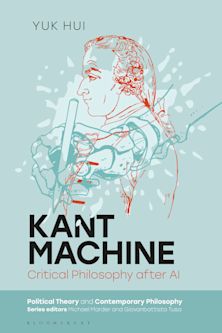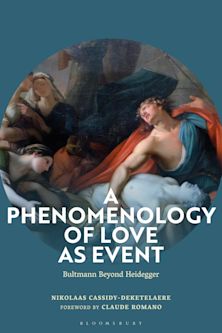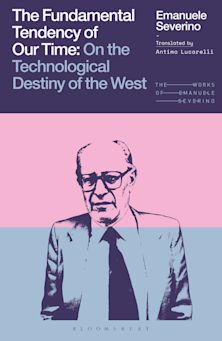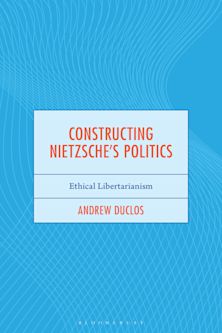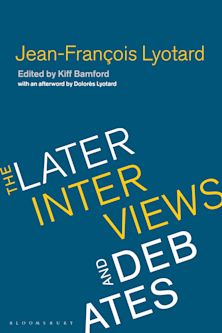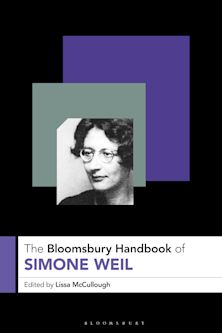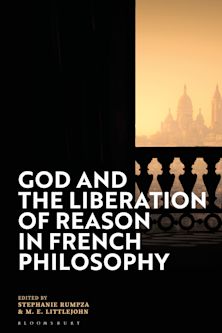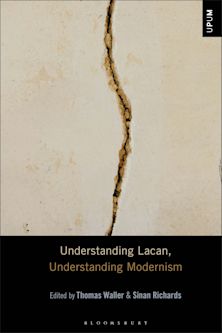- Home
- ACADEMIC
- Philosophy
- Continental Philosophy
- Ricoeur and the Hermeneutics of Suspicion
You must sign in to add this item to your wishlist. Please sign in or create an account
Description
In Ricoeur and the Hermeneutics of Suspicion, Alison Scott-Baumann takes a thematic approach that explores Ricoeur's lifelong struggle to be both iconoclastic and yet hopeful, and avoid the slippery slope to relativism. Through an examination of the 'hermeneutics of suspicion', the book reveals strong continuities throughout his work, as well as significant discontinuities, such as the marked way in which he later distanced himself from the 'hermeneutics of suspicion' and his development of new devices in its place, while seeking a hermeneutics of recovery. Scott-Baumann offers a highly original analysis of the hermeneutics of suspicion that will be useful to the fields of philosophy, literature, theology and postmodern social theory.
Table of Contents
1. Cartesian doubt
2. Ricoeur's Hermeneutics I: The Archaeology of Suspicion 3. On the Use and Abuse of the Term 'Hermeneutics of Suspicion'
4. Ricoeur's Masters of Suspicion: Marx, Freud and Nietzsche
5. Ricoeur's Hermeneutics II: The Theory of Interpretation
6. Linguistic Analysis
7. Methodological Dialectics
8. Philosophical Anthropology
9. The Hermeneutics of Recovery
10. Conclusion
Bibliography
Index
Product details
| Published | 23 Aug 2009 |
|---|---|
| Format | Ebook (PDF) |
| Edition | 1st |
| Extent | 256 |
| ISBN | 9781441159076 |
| Imprint | Continuum |
| Series | Continuum Studies in Continental Philosophy |
| Publisher | Bloomsbury Publishing |
About the contributors
Reviews
-
This book has all the virtues of Ricoeur's own work: wide-ranging, philosophically acute, immensely well-informed, possessed of a searching critical intelligence, and capable of stretching the reader's mind around questions that demand a real depth of ethical as well as philosophical engagement ... a fine contribution to Ricoeur's reception-history and one that will doubtless rank high on the list of authoritative secondary literature.
Professor Christopher Norris, Cardiff University, UK
-
Scott-Baumann seeks to correct the widespread attribution to French philosopher Paul Ricoeur (1913-2005) a position somewhat resembling postmodern trends of pessimistic tenor, which he himself rejected. There is no such error in the French literature, she points out, so the problem may be some nuance shift when the phrase hermeneutics of suspicion is translated. Among her topics are Cartesian doubt; Marx, Nietzsche, and Freud as Ricoeur's masters of suspicion the use and abuse of the term hermeneutics of suspicion linguistic analysis methodological dialectics and philosophical anthropology. Interspersed are three views of Ricoeur's hermeneutics, focusing in turn on the archeology of suspicion, the theory of interpretation, and recovery.
Eithne O'Leyne
-
Students new to Ricoeur's work will find here a patient and crystalline introduction to the whole of his works, presenting both concise content summary and elucidation of his philosophical "inter-method" Ricoeur scholars will value Scott-Baumann's book for its seamless reconciliation of the two Ricoeurs- the skeptic and the believer- as the one master theorist of how skepticism can protect, rather than erase, human being.
Common Knowledge, Volume 17, No.3

ONLINE RESOURCES
Bloomsbury Collections
This book is available on Bloomsbury Collections where your library has access.












